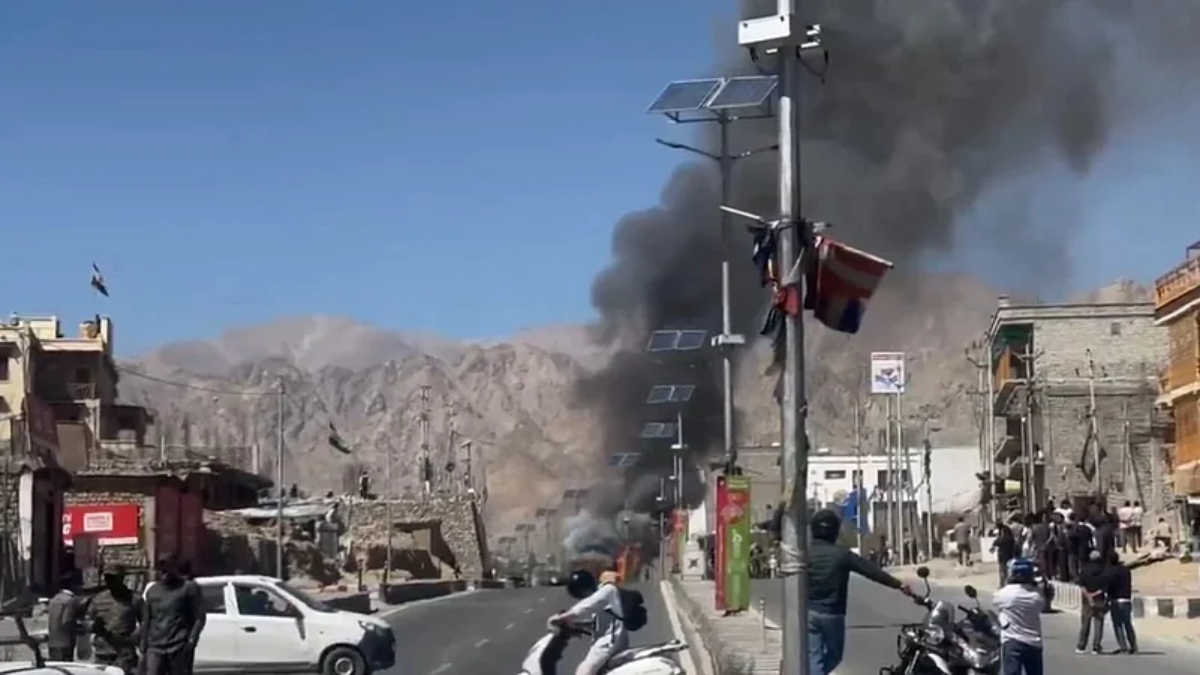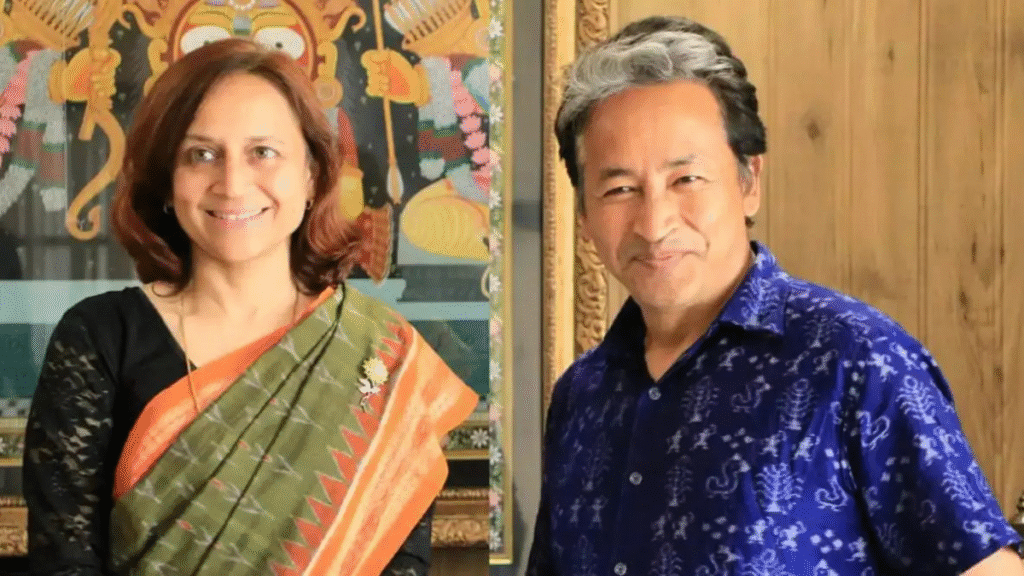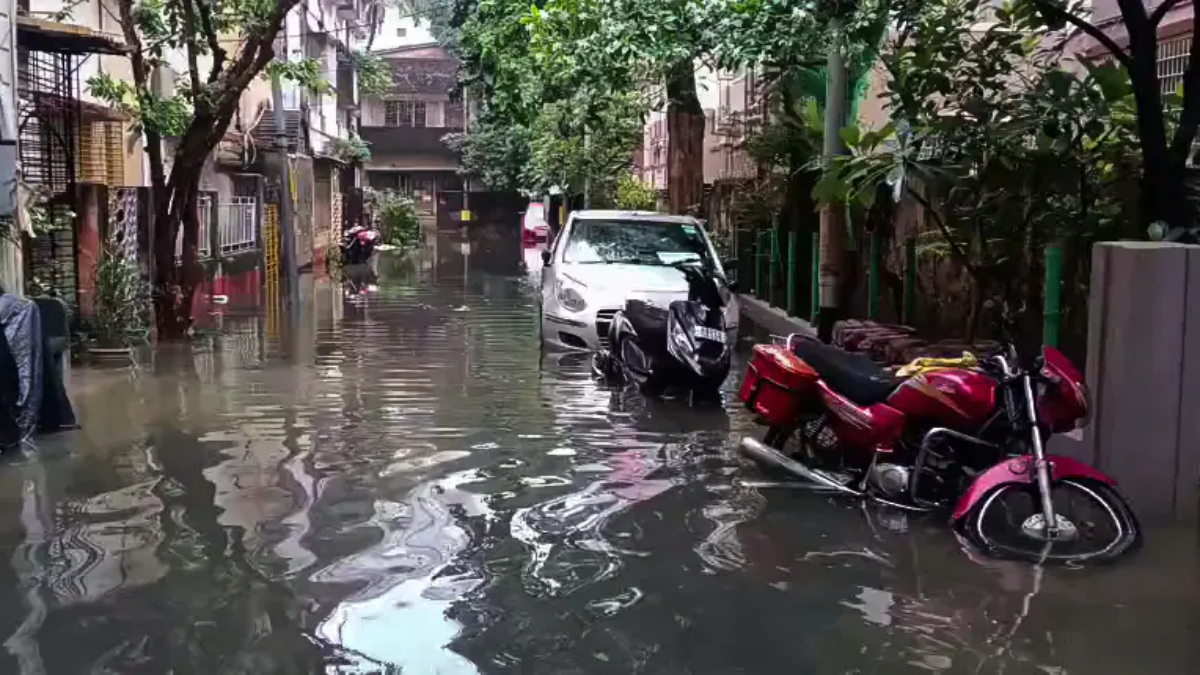Now Reading: Mistrust in Ladakh: The Unfolding Crisis Over Legitimate Aspirations
-
01
Mistrust in Ladakh: The Unfolding Crisis Over Legitimate Aspirations
Mistrust in Ladakh: The Unfolding Crisis Over Legitimate Aspirations

The Union Territory of Ladakh, a strategically vital and ecologically fragile region, is currently gripped by a profound sense of mistrust and volatility following violent clashes that erupted on September 24, 2025. What began as persistent, largely peaceful demonstrations for constitutional safeguards has escalated into a tense standoff between local representative bodies and the central government, resulting in the tragic loss of civilian lives and significant property damage. This violence underscores a growing disconnect in perceptions and a deepening frustration over what local residents consider their legitimate aspirations since the region’s reorganisation in 2019.
The Core Demands: Statehood and the Sixth Schedule
The unrest is fundamentally driven by a united, four-point agenda spearheaded by the Leh Apex Body (LAB) and the Kargil Democratic Alliance (KDA)—a rare convergence of the Buddhist-majority Leh and Muslim-majority Kargil districts. Their central demands are:
- Statehood for Ladakh: A call for greater political autonomy through the establishment of an elected Legislative Assembly, thereby ending the direct administration by the Lieutenant Governor (LG) and addressing what many perceive as a “political vacuum.”
- Inclusion under the Sixth Schedule: This constitutional provision grants autonomy to tribal areas—currently in states like Assam, Meghalaya, Tripura, and Mizoram—allowing for the formation of Autonomous District Councils with powers over land, forests, and local governance. Given that Ladakh’s population is predominantly tribal (around 97% Scheduled Tribe), this is seen as a crucial mechanism to protect the region’s unique tribal culture, identity, and the fragile Himalayan ecosystem from unchecked external exploitation and demographic change.
- Job Reservation: Guaranteeing a high percentage of jobs for local youth to combat unemployment, a long-standing concern exacerbated after the region’s bifurcation.
- Separate Parliamentary Seats: A demand for two Lok Sabha seats (one for Leh and one for Kargil) and a Rajya Sabha seat to ensure adequate political representation in the central legislature.
The Roots of Mistrust and Escalation
The current phase of agitation began shortly after Ladakh was carved out as a Union Territory (UT) in August 2019, a move initially welcomed by some in Leh but quickly followed by anxiety in both districts. The protests have intensified over the years, most recently through a prolonged hunger strike by climate activist Sonam Wangchuk and other elderly protestors, who are at the forefront of the movement.
The mistrust between the Centre and local bodies stems from a perception that their demands, particularly the critical ones of Statehood and Sixth Schedule inclusion, have been met with prolonged delays and inconclusive dialogues. Despite several rounds of talks with the central government’s High-Powered Committee (HPC), substantive constitutional safeguards have not been delivered.
The recent violence in Leh, which involved the torching of a political party office and the vandalising of the Ladakh Autonomous Hill Development Council (LAHDC) headquarters, reportedly broke out following the hospitalisation of two elderly hunger strikers. This triggered an outburst of frustration, particularly among the region’s youth, whom some have labelled “Gen-Z” protesters, signalling their impatience with the slow pace of dialogue. While protest leaders have distanced themselves from the arson, the Centre has alleged that politically motivated individuals and even foreign elements have instigated the violence, further clouding the atmosphere of cooperation.
The Way Forward
The strategic location of Ladakh, bordering China, necessitates a sensitive and urgent resolution. For a peaceful de-escalation, the Centre must bridge the evident gap between its perception of addressing core concerns and the on-ground reality felt by the people. The legitimate aspirations of the Ladakhi people—for political control over their destiny, protection of their unique identity, and preservation of their environment—must be addressed through a time-bound and sincere political process. Violence from any quarter is detrimental, and only renewed, result-oriented dialogue can rebuild the fractured trust and ensure that Ladakh can manage its affairs responsibly within the framework of the Indian Constitution, securing both local rights and national interests.








